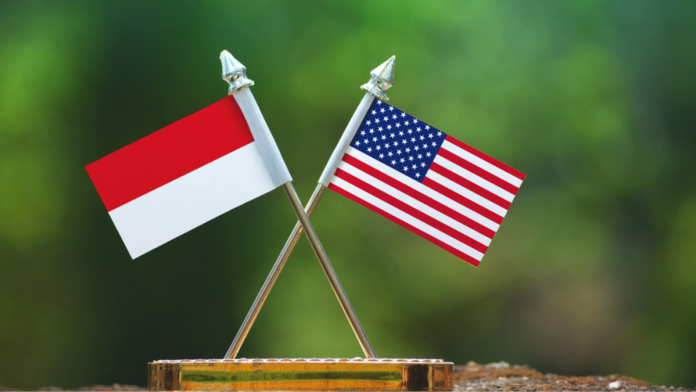Indonesia is pushing back against strong demands from the United States as both sides work to finalise a trade deal first outlined in July. The preliminary agreement placed a 19 per cent “reciprocal tariff” on Indonesian goods entering the US. As negotiations continued, the US under President Donald Trump pressed Indonesia to accept strict “poison pill” clauses.
These clauses allow the US to end the trade deal if Indonesia signs another agreement that Washington believes harms essential US interests. The US recently added similar clauses to new deals with Malaysia and Cambodia. Indonesia, however, has rejected them, saying the rules interfere with the country’s right to make its own economic decisions.
People familiar with the talks said the clauses were viewed as limiting Indonesia’s freedom to act. One Indonesian government official said the issue was linked to “economic sovereignty”. Another person involved described the terms as “one-sided”. Officials believe these rules would give the US too much influence over future decisions that Indonesia needs to make independently.
US Conditions Raise Concerns in Jakarta
The US also requested that Indonesia follow certain American sanctions, avoid digital taxes that could affect US technology companies, and consult Washington before signing any digital trade deal with another country. These terms were accepted by Malaysia and Cambodia, but Indonesia considers them too restrictive.
The office of President Prabowo Subianto and the Ministry of Economic Affairs—which is leading the negotiations—did not respond to requests for comment. However, Indonesia’s resistance shows how seriously the government views the potential impact of the clauses.
Indonesia’s Economic Weight Shapes Its Response
Indonesia’s stance is influenced by its position as Southeast Asia’s largest economy. Simon Evenett, a professor of geopolitics and strategy, noted that Indonesia’s economy is about three times larger than Malaysia’s. This gives Jakarta more leverage in the talks.
Indonesia is also less dependent on the US market than some neighbours. In 2024, Indonesia exported about $28 billion in goods to the US, while Malaysia exported roughly $53 billion. This difference means Indonesia has more flexibility to reject terms it views as unfavourable. The country also maintains strong trade links with several partners, giving it options beyond the US.
China plays a major role in Indonesia’s balance. China is the biggest trading partner for most Southeast Asian countries and is a top investor in the region. In Indonesia, China is heavily invested in the nickel industry, which is key for stainless steel and electric vehicle batteries. Because of these ties, Indonesia aims to maintain balanced relations with both the US and China.
350% tariff warning became Trump’s claimed tool in India–Pakistan tensions
Sources familiar with Indonesia’s thinking said the government fears losing autonomy if it accepts the US clauses. Officials believe the terms could restrict the country’s ability to manage future partnerships. In Malaysia, similar clauses have already caused public debate, with critics saying they may affect the country’s neutrality.
Earlier in November, Indonesia’s Coordinating Minister for Economic Affairs, Airlangga Hartarto, said negotiations with the US were ongoing and could be finalised this year.
Regional Challenges for Washington’s Strategy
Indonesia’s pushback highlights the broader difficulty the US faces in Southeast Asia. Washington aims to strengthen supply chains and limit China’s influence through trade deals that include strict conditions. But Indonesia’s rejection shows countries in the region are careful about signing agreements that could reduce their independence.
A senior official from the Office of the US Trade Representative said the US seeks to increase bilateral trade while respecting every country’s right to manage its own economic security. With negotiations still in progress, the “poison pill” clauses remain a central issue between the two nations.


